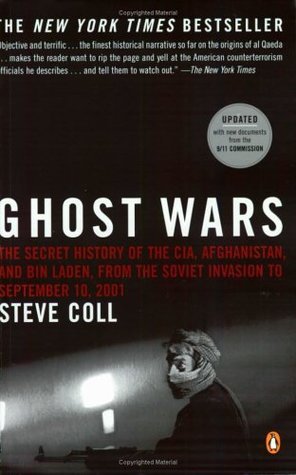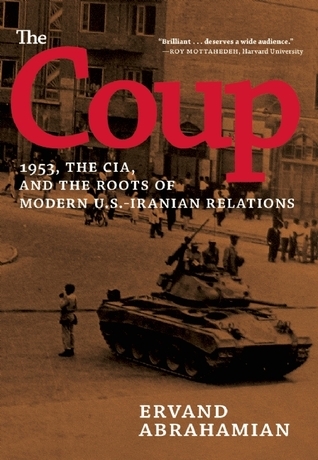
The Achilles Trap: Saddam Hussein, the C.I.A., and the Origins of America's Invasion of Iraq
Book Description
A shadowy web of deception and betrayal unravels as the world stands on the brink of war. "The Achilles Trap" plunges deep into the chaos and intrigue that ignited America’s invasion of Iraq, revealing the entwined fates of Saddam Hussein and the C.I.A. Power struggles, intelligence failures, and the ticking clock of geopolitics create a high-stakes drama that changed the course of history. As alliances crumble and secrets spill into the open, who truly holds the key to the volatile future? Tension mounts: what dark forces lurked behind the decisions that altered the fate of nations?
Quick Book Summary
"The Achilles Trap" by Steve Coll is a sweeping investigation into the troubled entanglement between Saddam Hussein's Iraq and the American intelligence community that ultimately led to the U.S. invasion in 2003. Drawing on declassified archives, interviews, and firsthand accounts, Coll reveals how mistrust, manipulation, and systematic intelligence failures undermined efforts at diplomatic resolution. The book uncovers the complex web of decisions and miscalculations: the CIA’s struggles to understand Saddam’s mindset, Saddam’s resilience and paranoia, and the broader geopolitical shocks from the end of the Cold War to the aftermath of 9/11. Coll challenges the narratives that justified war, meticulously dissecting the catastrophic interplay of ambition, error, and secrecy that set the stage for a conflict with global repercussions.
Summary of Key Ideas
Table of Contents
The Paranoia and Calculations of Saddam Hussein
The collapse of trust between Saddam Hussein and the United States forms the backbone of the narrative. Coll reconstructs critical miscommunications, misreadings, and bitter suspicions that defined Saddam’s relationship with the West. Saddam’s regime, shaped by relentless survivalism, governed through a mixture of coercion, spectacle, and paranoia. The Iraqi leader’s perception of threats—both real and imagined—intensified his isolation and led to deadly miscalculations, with Saddam always trying to project strength while shrouding his true intentions. This atmosphere exacerbated the difficulties the C.I.A. faced in predicting Saddam’s actions or goals.
C.I.A. Intelligence Gaps and Missteps
American intelligence efforts consistently fell short in their analysis of Saddam’s motivations and the realities within Iraq. Coll details how the C.I.A. was hampered by unreliable sources, technological limitations, and an overreliance on circumstantial evidence. Efforts to penetrate Saddam’s inner circle were frustrated by his mastery of deception and the insular nature of his regime. Erroneous assessments—most notably regarding weapons of mass destruction and internal dissent—sowed the seeds for flawed policy choices, making it easier for hardliners to advocate for military intervention.
The Interplay of American Foreign Policy and Middle Eastern Politics
Broader U.S. foreign policy decisions, particularly after the Cold War, inform the context in which intelligence failures occurred. Coll examines how shifting alliances, sanctions, and the events of 9/11 hardened American attitudes toward Iraq. Policymakers, eager for clarity and quick solutions, allowed biases and political agendas to skew vital intelligence. The complex interplay between Middle East geopolitics—among Arab states, Iran, and Western powers—added further layers to an already volatile situation, with leaders on all sides working from incomplete or misleading information.
Diplomatic Failures and Escalating Mistrust
A cycle of missed diplomatic opportunities and escalating mistrust drove both sides further from peaceful resolution. Coll illuminates failed back-channel communications, aborted peace overtures, and the erosion of conventional diplomacy as war drew nearer. The book maps out the pivotal moments where strategic patience gave way to confrontation, and where dialogue was drowned out by calls for regime change. At each turn, both Saddam’s intransigence and U.S. strategic rigidity are shown as contributing to the momentum toward war, sealing the fate of millions.
The Road to War and Consequences
Coll concludes by assessing the ramifications of these interwoven failures. The invasion of Iraq created deep regional instability and set into motion consequences that still reverberate. "The Achilles Trap" ultimately interrogates the narratives of inevitability and righteous intervention, exposing how error, secrecy, and hubris led the world into a costly conflict. The book serves as both a cautionary tale and a meticulously researched chronicle of one of the 21st century’s defining disasters.
Download This Summary
Get a free PDF of this summary instantly — no email required.





